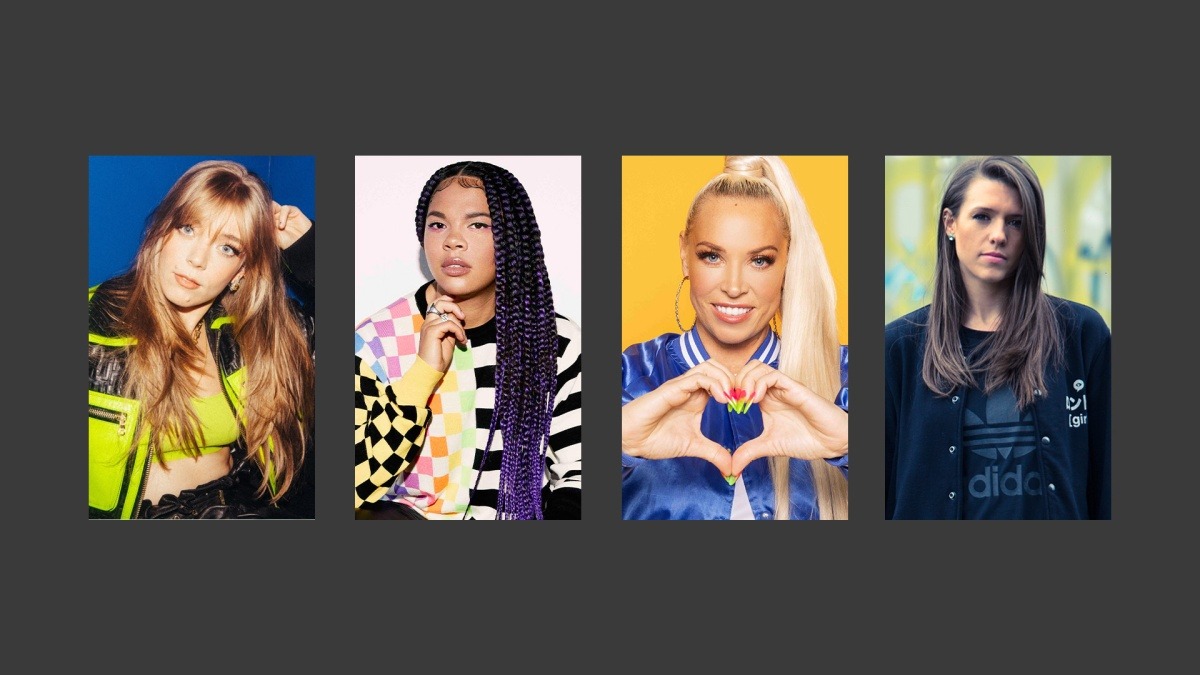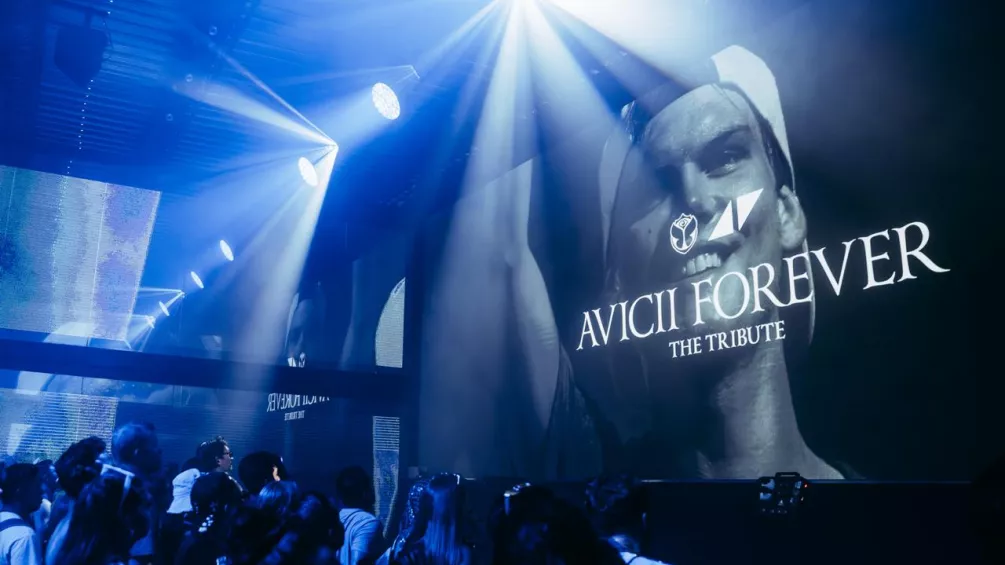
Lady of the House launches record label with production competition
Lady of the House has launched a new record label.
Announced by the platform’s co-founder, Laila Mckenzie, at this year’s Brighton Music Conference, A&R for the label’s first four releases will be handled by BBC Radio 1’s Jaguar and Charlie Tee, Defected’s Sam Divine and Brit Dance Act 2022 winner Becky Hill.
The platform – which originated as a book celebrating house music’s pioneering women – has launched a month-long production competition to find new talent for the label’s first four releases. Women and non-binary artists are encouraged to submit their demos to be in with the chance of releasing their music through the label this year. Entries are open now and will close on 30th June.
This format will be replicated several times throughout the year, with a different group of Lady of the House “Godmothers” scheduled to A&R releases by competition winners in each round of submissions.
Winners will receive a special support package as part of their record release, including a remix of their track by a prominent artist, a professional promotional campaign and the chance to perform at a major event.
Submit your demo here.
DJ Mag caught up with McKenzie after the announcement at BMC to learn more about the label’s origins and plans for the future.
Congratulations on the label launch! What made you decide to set up an imprint now?
“Bentleigh Burgess, the owner of Lakota, is kind of like my dad and he suggested it to me. I was like, ‘no it’s too much work, I’ve not got the resources and I don’t know anything about running record labels, other than I know good music’. Then, more people started coming up to me months after that initial conversation. I was in Miami in March and the Labelworx guys came up to me and said, ‘we really love what you do, this is so important and there are so many women that we represent in the Lady of the House book’. They’d been following the story and said, ‘we’d really like to support you to start a label, we want to make this happen’. So we had a chat in March and now we’re in May – it’s moving pretty fast.”
Do you have any artists on your roster already?
“No – the competition we announced on the panel will be the first four releases, so we haven’t got a clue who the artists are going to be. We’ve got the A&R – Becky Hill, Jaguar, Charlie Tee and Same Devine, are the first four A&Rs for the first round of submissions. We’re gonna see how the first round goes and then replicate it a number of times throughout the year. We want to have a different round of Lady of the House ‘Godmothers’ each time, because there are so many women all over the world that I would love to A&R for this. I want to find emergent talent first, but I’m also planning to get some established artists.”
Sounds good – do you have any artists in mind?
“I’ve not approached anyone yet because I wanted to put the full focus first and foremost on the competition. It’s important to nurture emerging talent, especially now with the fast music cycles. In terms of established names, we would love to work with some of the icons – Ultra Nate, Rowetta, Kathy Brown – and rising talent like LP Giobbi, Bklava, Ash Lauryn and Cici, and of course people like TSHA, Nicole Moudaber, Charlotte De Witte, Lyric Hood, Jayda G, the list goes on. Obviously, Sam Divine is gonna have to release something with us because she always supports us. But somebody I really want to A&R for us is Gladys Pizzarro, who started Strictly Rhythm. She broke Masters At Work and so many other great artists from the States. She’s one of the best A&Rs in business and she still hasn’t lost her touch. She knows how to find a dope track.”
How’s the roll out for the first round of releases looking?
“So the competition closes 30th of June, then we’re gonna give the A&Rs a few weeks to choose. I’d like to have the winners picked by the second or third week of July. We’re looking to get the tracks played out at festivals and clubs over the summer and then will release them in succession. We want each person’s release to have a focused promotional campaign, with the first release going out at the end of August, start of September. We want to get as much demos as possible because, even though we’re only picking four in this round, we want to create a pool – we might revisit the music.”
You mentioned earlier just how quickly the music cycle is now and I know you’ve been a promoter for over 20 years. I wonder what changes in club culture you’ve noticed – good and bad – over the years.
“I started by glass collecting in the club over 20 years ago and within a year I was building the guestlist for parties. If you wanted to get people to your party you had to get out there on the streets with a clipboard – I used to go around all the shops on a Saturday, all the clothes shops where I knew the party people would be hanging out and that’s how we promoted. Diversity, and just the business in general, aside, the rise of social media has been the main change. It’s a double-edged sword – part of it’s saved us and part of it’s killed us. It’s basically made everything much more accessible, but then with accessibility comes saturation.
“Another thing that stands out is there are more women behind the decks. When I was going to warehouse raves back in the day there was much more of a presence of women singers and dancers, but you didn’t get to see them playing behind the decks. Now that’s changed, there are so many women out there. I do still think we’ve got a way to go in territories of emerging Black and brown women artists but I do think from a purely gender perspective, women are much more represented.
“But on the business side, that’s changed. When I started out, women were the business. Our book [Lady of the House] shows women were the business. People like Lynn Cosgrave who managed Carl Cox and founded the Ministry of Sound record label, Maria May who represented Frankie Knuckles, Caroline Prothero who managed David Guetta, Daft Punk and The Chemical Brothers. Marci Webber looked after MK and Moby and blew up their careers. There are so many women who have been pivotal because they organised everything. It was us that made it into a structured business, got everybody where they needed to be when they needed to be and made this into a sustainable business model, not just a party. I saw this from a young age, even though I didn’t know people like Lynn and Caroline because I was still very much underground up north, but even in the dangerous underground clubs, there were women on the doors, front of house, managing the bars, marketing and managing clubs. We didn’t even have to speak about equalising things for women in that area. So over the years I’ve noticed that we’ve got more women behind the decks, but the visibility of women running the business has started to disappear.”
Lady of the House started out as a book, but has since morphed into a number of projects – you now have an annual exhibition and regular party series. Was it always the plan to expand the scope of the platform?
“No, it wasn’t always the plan. I did the book because it was during the pandemic and the book needed to be done – we’ve nearly sold out on the first run – but it was really pricey, it cost £25 to make per unit, so we’ve made no profit, but now we have this great platform. So we asked ourselves how we can make Lady of the House sustainable whilst serving the community and following our passion. What’s missing from the industry and how can we tell these dynamic stories and present it to the next generation? That’s why we did the exhibition and are putting on dance events. For me the record label is really the missing piece of the jigsaw.





